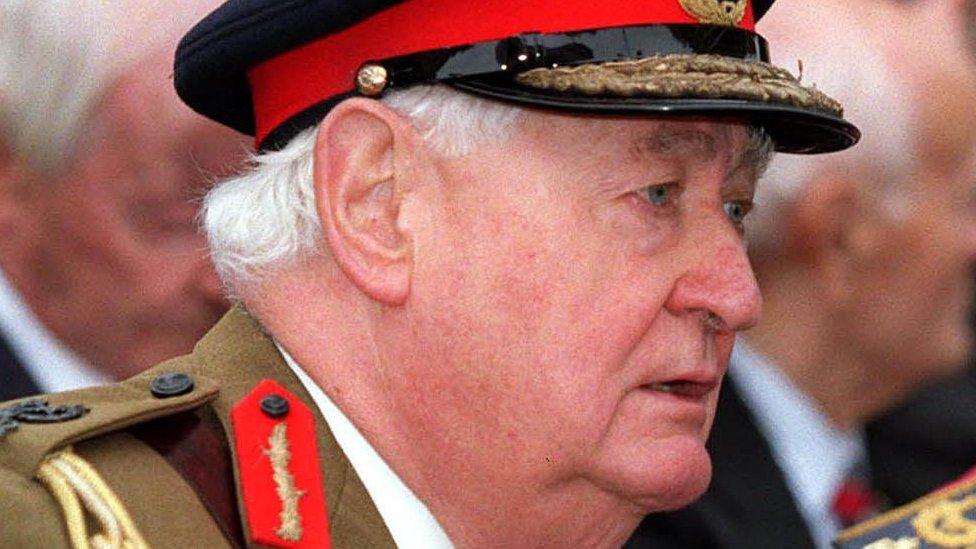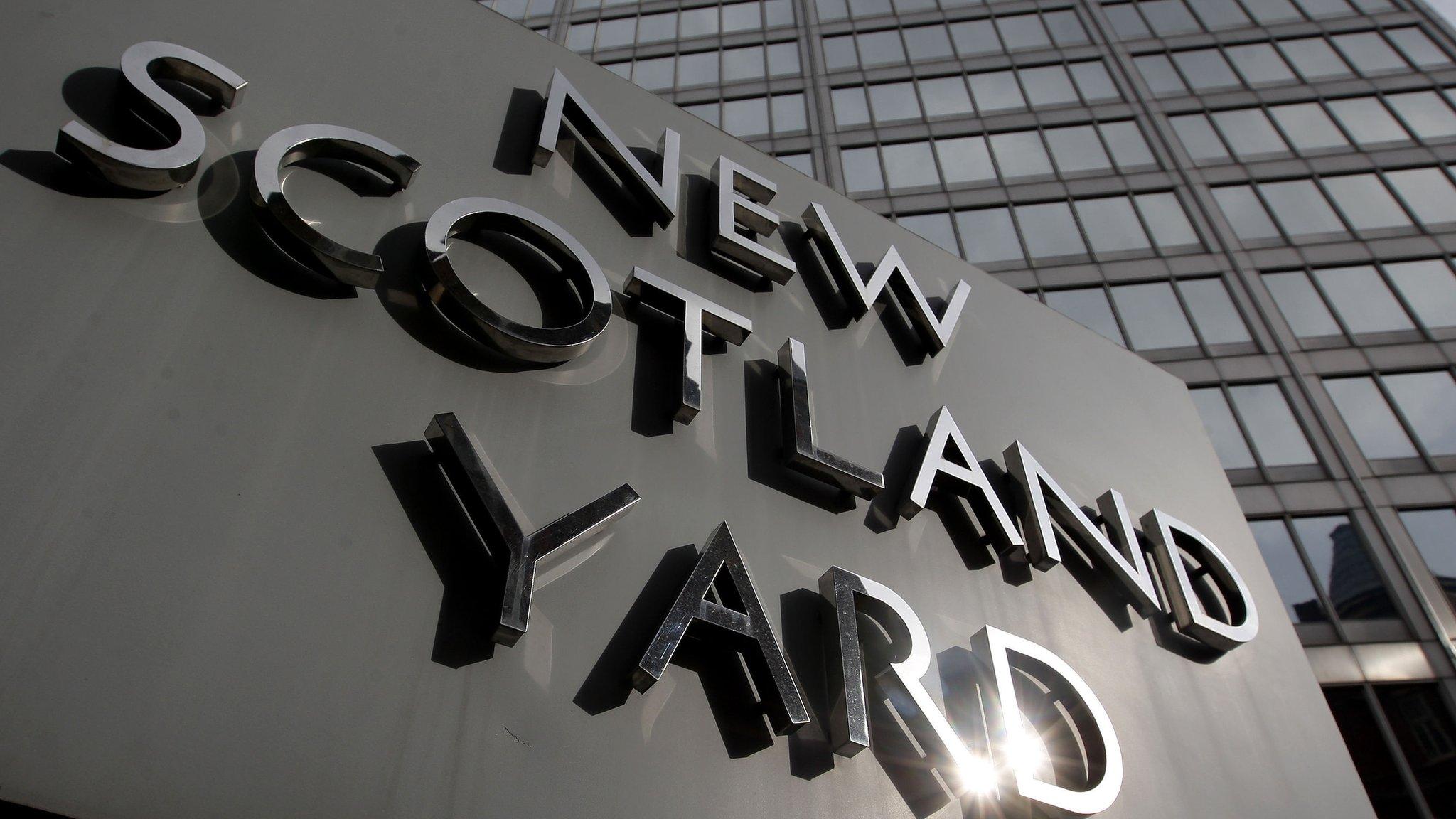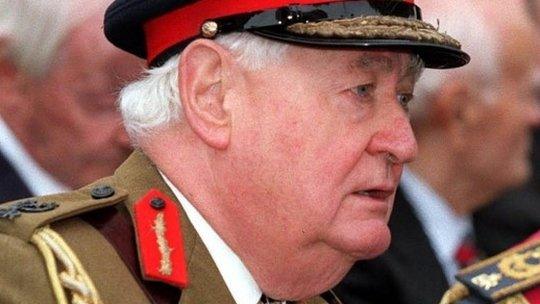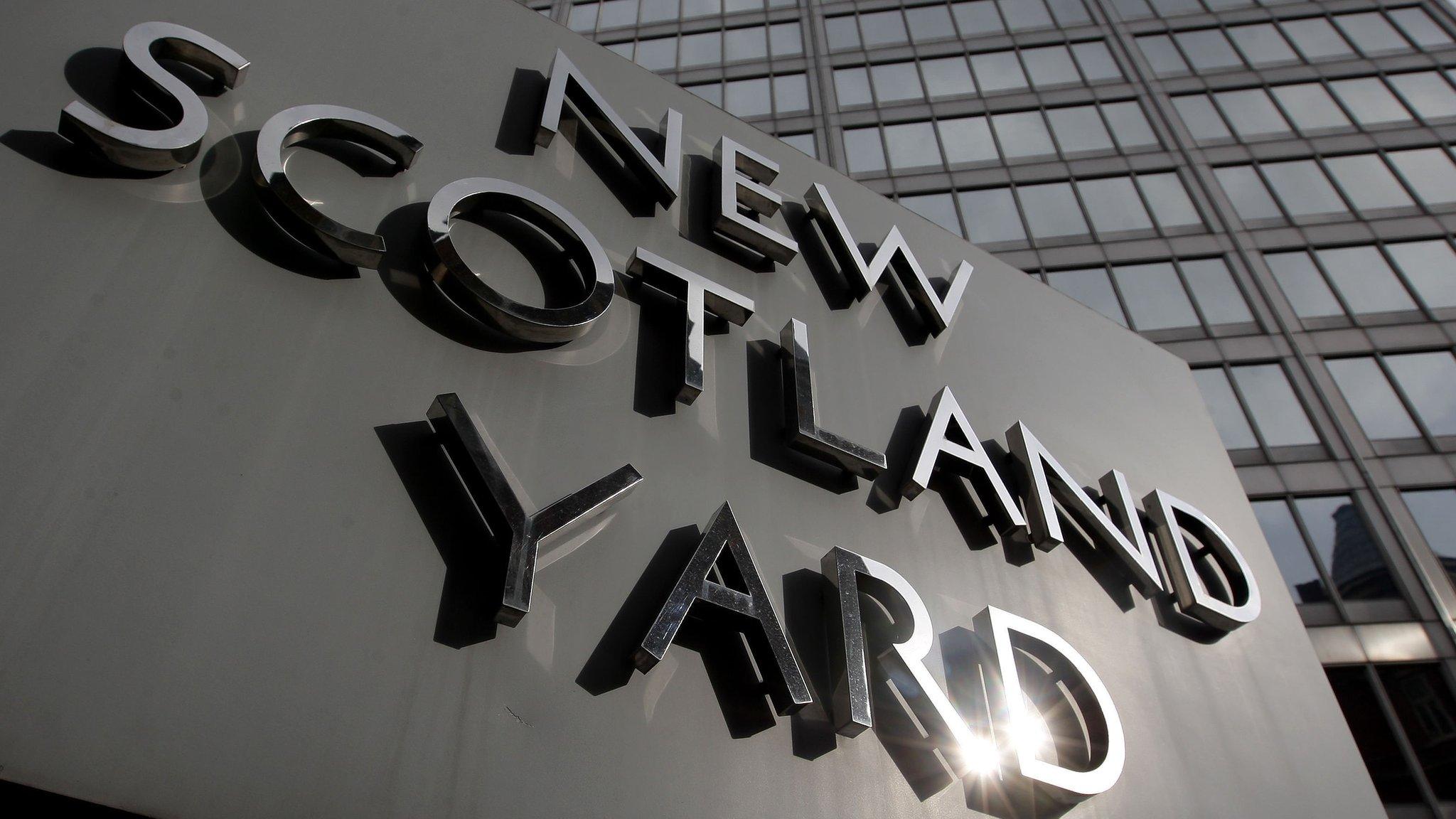Police 'should be neutral' in sex abuse inquiries, says Met head
- Published
Sir Bernard Hogan-Howe: 'We want to be open-minded'
Police should change their approach to allegations of sex abuse and not automatically believe the complainant, Sir Bernard Hogan-Howe has suggested.
Speaking at a BBC event, the Met Police commissioner said it was time to "reformulate" the policy, so police showed empathy towards victims but kept an open mind as they tested claims.
The policy is expected to be considered in a review of the Met's procedures.
The NSPCC said it was "deeply disturbed" by the proposed change.
The review, which will be led by an ex-judge, follows criticism of the Met's handling of high-profile investigations into claims of historical sex abuse.
It will scrutinise the force's handling of investigations including Operation Midland - which is looking at claims that boys were abused by powerful men from politics, the military and law enforcement agencies in the 1970s and 80s.
Anonymity for suspects
In 2014, Her Majesty's Inspector of Constabulary said "the presumption that a victim should always be believed should be institutionalised".
However, Sir Bernard told BBC Radio 4's Today programme police had become "hung up" on the word belief and it had "confused officers".
He said: "My point would be of course we've got to be empathetic. We want people to believe we're going to listen to them, we want to be open minded, what they tell us and then what the suspects tell us, and then we've got to test all that evidence.
"I think there is a grave danger at the moment with the advice that is around that perhaps there is a tendency to think that we will always believe any complaint that is made and that's not wise for any good investigator, nor as it would be for any journalist."

Allegations against Lord Bramall were found to have no substance
Much of the criticism of Operation Midland has revolved around comments made by one senior detective.
At the beginning of the investigation, the officer described allegations made by a man known as Nick as "credible and true".
Sir Bernard said the officer had "misspoken" after becoming "confused" by the need to follow guidance about complainants being believed.
Asked whether the Met risked dissuading victims from coming forward, Sir Bernard said police had been criticised for carrying out a "witch hunt" after previously being accused of not properly investigating abuse claims.
"We are now being accused of being witch hunters and doing it in a very inappropriate way and I'm prepared to look at that and that's why I've set up this review.
"If we get this wrong, not just police, but society, lawyers, etcetera, people won't come forward, and surely what we we all want to happen, particularly a child today, wants to feel confident that someone is not going to hang them out to dry," Sir Bernard said.

Analysis

There has also been scrutiny of the Met Police's handling of an investigation against the late Lord Brittan
BBC home affairs correspondent Danny Shaw
"The police should immediately institutionalise the presumption that the victim is to be believed".
Those were the words of Sir Tom Winsor, the Chief Inspector of Constabulary, speaking in November 2014 - the month, coincidentally, that Scotland Yard launched Operation Midland.
Sir Tom was commenting after an inspection found that one in four sexual offences - and one in five of all crimes - reported to police in England and Wales weren't being recorded.
Sir Bernard Hogan-Howe's suggestion that police now adopt a more "open-minded" approach to victims' allegations is perhaps more of a change of gear than a handbrake turn.
He's not saying allegations shouldn't be taken seriously, logged properly and investigated thoroughly.
It's more about the need for detectives to remain objective throughout the process, and not to give the impression, least of all to suspects, that they're siding with victims.

Pressure on the Met
The review into the Met's procedures comes as the former head of the Army Lord Bramall, 92 - who last month found out he would not face any further action in connection with Operation Midland - called for a review into the case.
The peer strongly denied claims, and said detectives had taken 10 months before speaking to witnesses who cast doubt on the allegations.
There has also been scrutiny of the Met Police's handling of an investigation into a rape allegation against the late Lord Brittan, a former home secretary.
He died in January 2015 without being told that the case against him had been dropped.
Sir Bernard has come under mounting pressure to apologise to Lord Bramall, with critics questioning whether his contract should be renewed.
But Home Secretary Theresa May confirmed on Thursday that Sir Bernard's contract would be extended by a year from September.
Sir Bernard insisted he had not set up the inquiry to "divert attention" away from himself.
'Clear mistake'
However, he defended his decision not to apologise to Lord Bramall.
Sir Bernard told the Today programme: "I can't really apologise for investigating a serious allegation and that's what we've done.
"I have expressed regret and it's a genuine regret, if he, Lord Bramall, or his family has been damaged in this process, this investigation."
The commissioner said if the inquiry found the force could have "done it better" he would "acknowledge" the criticism.
Sir Peter Fahy, a former chief constable of Greater Manchester Police, told BBC Newsnight he felt some of the criticism Sir Bernard was receiving was unfair and that he was a "remarkable police leader".
However, he said that in the same position he would apologise to Lord Brittan's wife for the delay in informing him his case had been dropped.
"There is clearly a particular issue about a delay... that is a clear mistake, an error. It is not how the procedure should work," he said.
"But I certainly think that no chief constable would apologise for investigating anybody."
The NSPCC said it was "deeply disturbed" by the suggested change of police approach to sexual abuse victims.
"At a time when people have at long last found the confidence and courage to report these crimes it would be a tragedy to bring this progress to a juddering halt.
"Telling those who have been sexually abused they will no longer be automatically believed seems to be a panic measure which could have an adverse effect on a crime the government has classified as a 'national threat.'"
- Published10 February 2016

- Published7 February 2016

- Published4 February 2016

- Published21 September 2015
